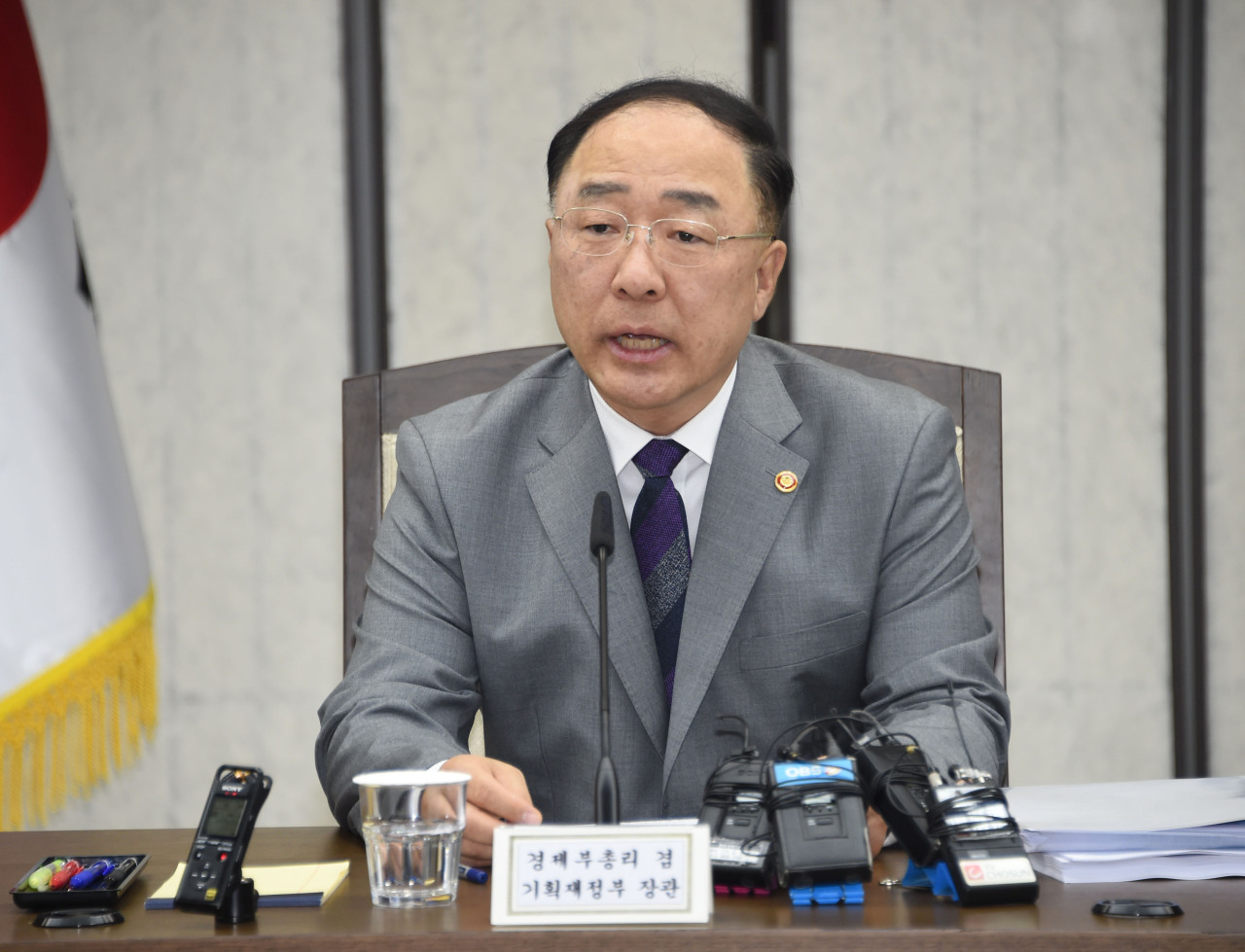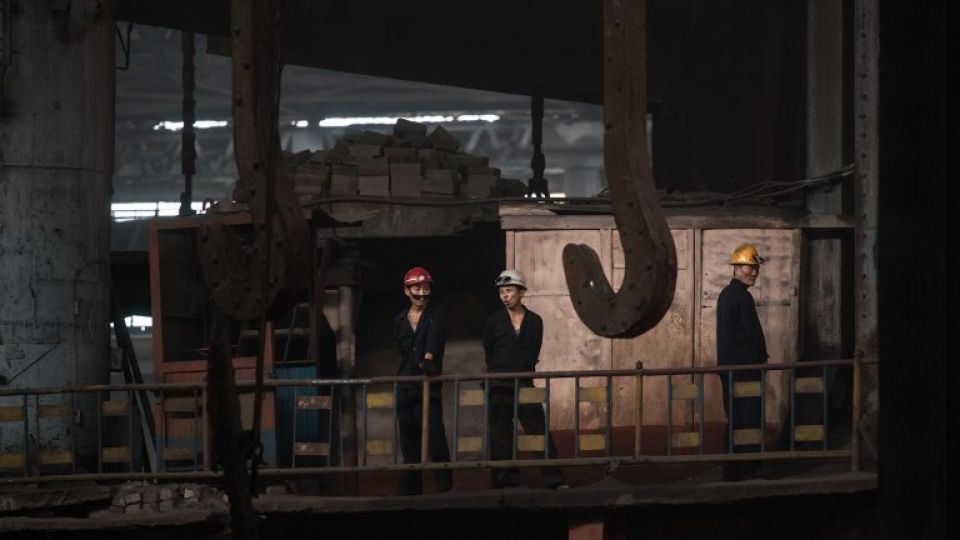October 15, 2019
Government to relax loan rules for brokerages, simplify screening for chemical plants.
The government plans to eliminate various regulations that hinder the development of new technologies and overseas expansion of local firms amid the recent economic uncertainties, South Korea’s top financial policymaker said Monday.
It is proposed to allow overseas affiliates of securities companies to take loans from Korean lenders, simplify the screening procedures for chemical facilities, and alleviate the authentication of certified industrial robots.
 |
“(The government) will lead the convergence of different industries through innovative ideas, while improving the outdated systems,” Deputy Prime Minister and Finance Minister Hong Nam-ki said in a ministerial meeting for innovative growth strategies.
The fiscal chief’s remarks came amid mounting concerns about the slowing trade momentum and gloomy outlook for the country’s economic growth pace this year.
Korea’s exports slipped 11.7 percent on-year to $44.7 billion in September, extending the on-year downtrend for the 10th consecutive month. Outbound shipments of semiconductors fell 31.5 percent on-year to $8.5 billion.
The major reasons for the sluggish trend are not only the prolonged slump of the memory chip business in general, but also external uncertainties such as the US-China trade spat and Japan’s trade curbs against Korea.
Seeking to support struggling exporters, the government vowed to establish a comprehensive digital platform to facilitate contracts, customs clearance and logistics procedures, Hong said.
“(The new platform) will provide transparent demand-based export information and link the data to marketing efforts,” he said.
“Companies will be able to gather all necessary data during all stages of their export procedures.”
Industrial robots which obtain safety certifications will be allowed to operate without additional notification or authentication processes, he said.
Also, the government will reduce the red tape for chemical facilities by consolidating several documentations, he added.
Based on these measures, a final plan will be drafted soon, the ministry said.
Meanwhile, the finance minister is scheduled to leave for Washington, DC on Tuesday to attend the annual meetings of the International Monetary Fund and the World Bank, as well as the G-20 ministerial summit, according to the Ministry of Economy and Finance.
“I will use this opportunity to meet with officials of global credit rating agencies such as Standard & Poor’s,” Hong said.
“While positively assessing the fundamentals of the Korean economy, I will also focus on providing back-up measures for the ongoing challenges.”


